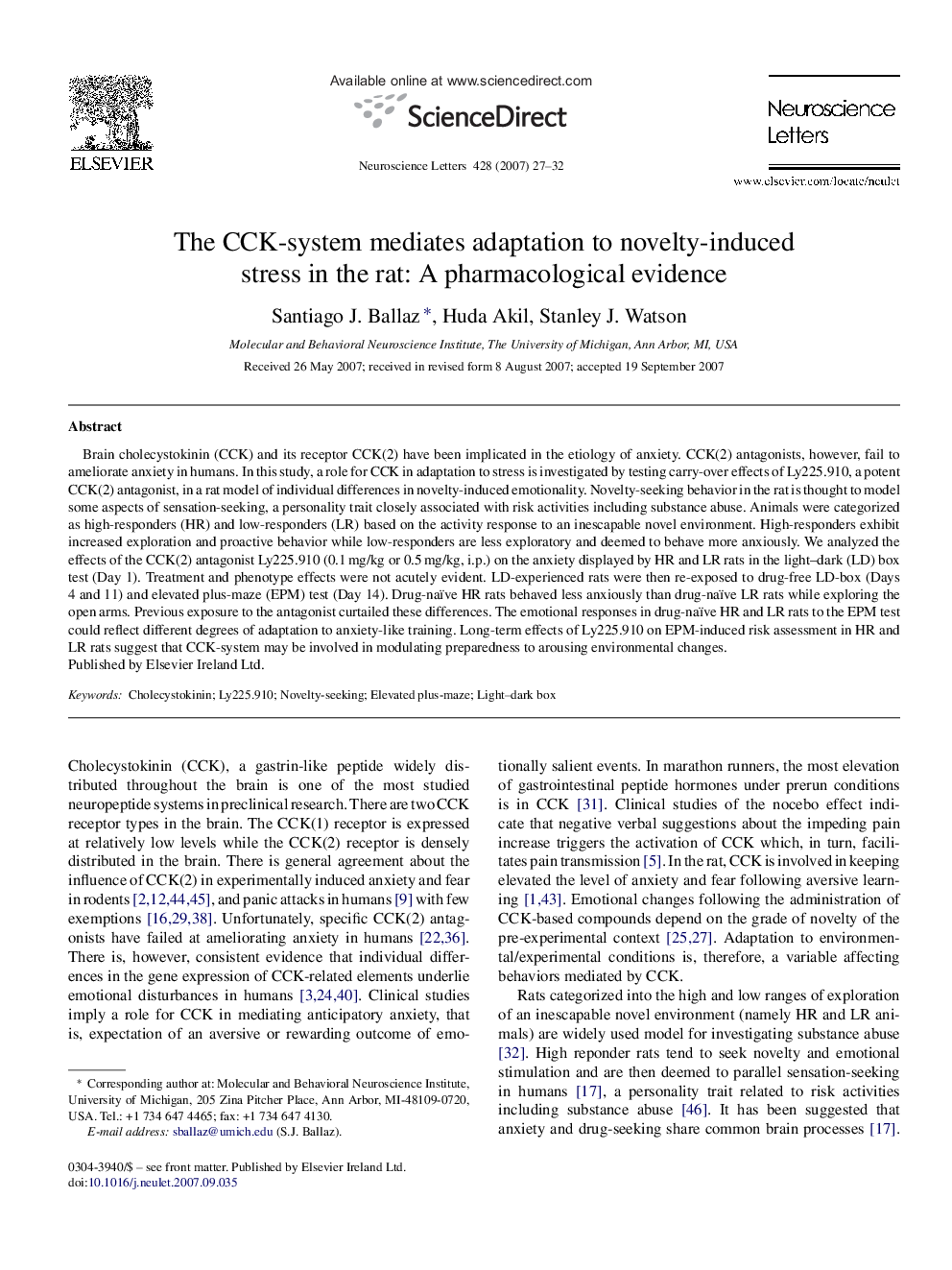| Article ID | Journal | Published Year | Pages | File Type |
|---|---|---|---|---|
| 4348943 | Neuroscience Letters | 2007 | 6 Pages |
Abstract
Brain cholecystokinin (CCK) and its receptor CCK(2) have been implicated in the etiology of anxiety. CCK(2) antagonists, however, fail to ameliorate anxiety in humans. In this study, a role for CCK in adaptation to stress is investigated by testing carry-over effects of Ly225.910, a potent CCK(2) antagonist, in a rat model of individual differences in novelty-induced emotionality. Novelty-seeking behavior in the rat is thought to model some aspects of sensation-seeking, a personality trait closely associated with risk activities including substance abuse. Animals were categorized as high-responders (HR) and low-responders (LR) based on the activity response to an inescapable novel environment. High-responders exhibit increased exploration and proactive behavior while low-responders are less exploratory and deemed to behave more anxiously. We analyzed the effects of the CCK(2) antagonist Ly225.910 (0.1Â mg/kg or 0.5Â mg/kg, i.p.) on the anxiety displayed by HR and LR rats in the light-dark (LD) box test (Day 1). Treatment and phenotype effects were not acutely evident. LD-experienced rats were then re-exposed to drug-free LD-box (Days 4 and 11) and elevated plus-maze (EPM) test (Day 14). Drug-naïve HR rats behaved less anxiously than drug-naïve LR rats while exploring the open arms. Previous exposure to the antagonist curtailed these differences. The emotional responses in drug-naïve HR and LR rats to the EPM test could reflect different degrees of adaptation to anxiety-like training. Long-term effects of Ly225.910 on EPM-induced risk assessment in HR and LR rats suggest that CCK-system may be involved in modulating preparedness to arousing environmental changes.
Related Topics
Life Sciences
Neuroscience
Neuroscience (General)
Authors
Santiago J. Ballaz, Huda Akil, Stanley J. Watson,
